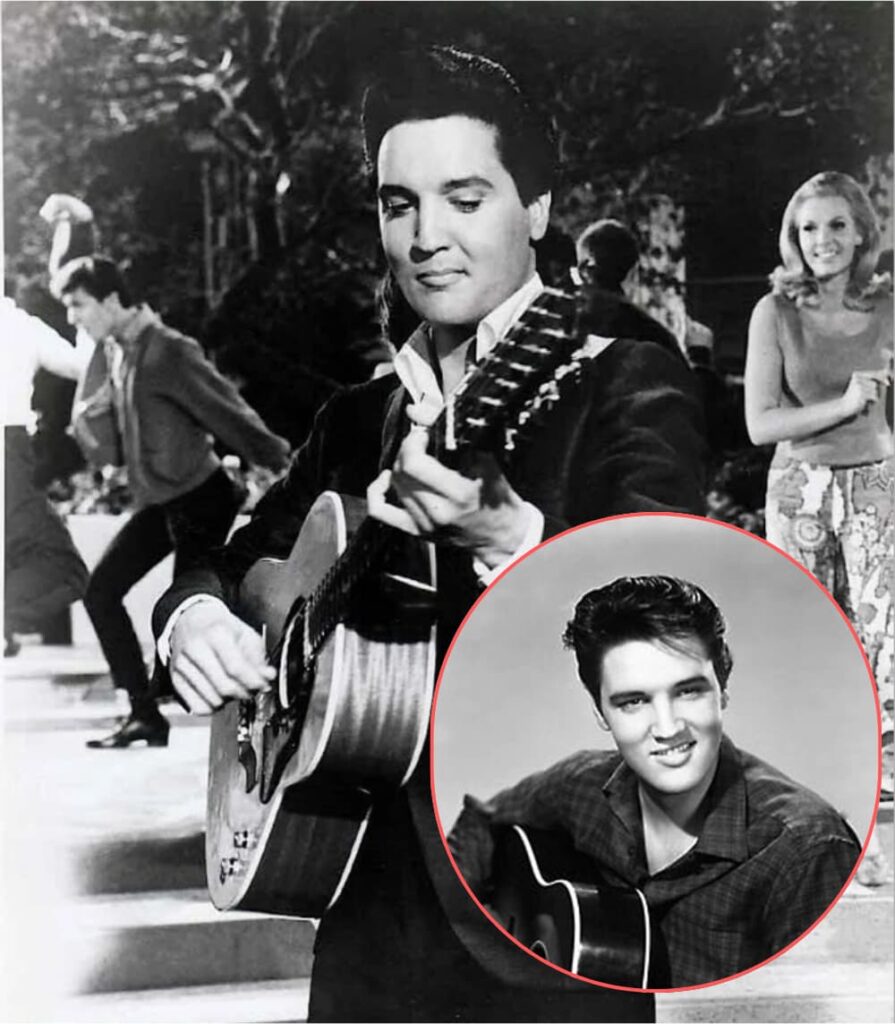
“A Thing Called Love”: A Resonant Reflection on Life’s Enduring Mystery
Ah, my dear readers, settle in for a moment, won’t you? Let’s cast our minds back to a simpler time, a time when a voice, rich and resonant, could truly stir the soul. We’re talking, of course, about the one and only Elvis Presley, and a song that, while perhaps not his most iconic chart-topper, certainly holds a profound place in the hearts of many: “A Thing Called Love.”
Released in 1972 as the title track from his album, this particular tune didn’t quite reach the stratospheric heights that some of his earlier hits did. It peaked at Number 2 on the Billboard Hot Country Singles chart, a respectable showing indeed, especially for a song that leaned more into the contemplative, country-gospel side of his repertoire. While it might not have been a Love Me Tender or a Hound Dog in terms of mainstream pop dominance, its enduring appeal lies in its quiet power and universal message.
The story behind “A Thing Called Love” is as straightforward as its title, yet its impact is anything but. Penned by the talented songwriter Jerry Reed, the song first found success with Jerry Reed’s own recording in 1971, reaching the country Top 5. However, it was Elvis’s rendition, imbued with his characteristic warmth and conviction, that truly cemented its legacy. Elvis recorded the song on March 22, 1972, at RCA’s studio in Nashville, and it was clear from the outset that he connected deeply with its spiritual and philosophical undertones. This wasn’t just another track for an album; it felt like a personal reflection from a man who had experienced the dizzying highs and profound lows of life in the public eye.
At its core, “A Thing Called Love” is a humble yet profound rumination on the mysterious, pervasive, and ultimately redemptive power of love. It doesn’t attempt to define love in a simplistic, romantic sense, but rather presents it as an all-encompassing force that permeates every aspect of existence, from the natural world to human experience. The lyrics, simple yet evocative, paint a picture of love as something intangible, something that “makes the world go ’round” and “makes a man a child.” It’s about the kind of love that transcends fleeting infatuation, the kind that endures through hardship and provides solace in uncertainty. For older listeners, it evokes a sense of recognition, a nod to the quiet wisdom gained through years of living and loving. It’s the kind of love that whispers through the rustling leaves, that gleams in the eyes of a grandchild, that offers comfort in the quiet hours of the night.
Think back, if you will, to the early 1970s. The world was changing rapidly, much like it always is, but there was a certain longing for authenticity, for something real to hold onto amidst the evolving cultural landscape. Elvis, by this point, was a seasoned performer, no longer the youthful rebel, but a figure of immense gravitas and experience. His voice had matured, gaining a richer, more nuanced timbre, perfectly suited for the heartfelt sincerity of “A Thing Called Love.” When he sang lines like “You can’t buy it, you can’t sell it, you can’t touch it, but you can feel it,” it wasn’t just a performance; it was a testament. It resonated with anyone who had ever grappled with the inexplicable beauty and occasional pain of human connection.
This song, my friends, is more than just a musical track; it’s a gentle reminder. A reminder that in a world often consumed by the tangible and the measurable, some of the most profound truths lie in the unseen. It’s a testament to the enduring power of a simple melody, a thoughtful lyric, and a voice that could, with effortless grace, touch the very soul. So, the next time you hear “A Thing Called Love,” let it wash over you. Let it transport you back to a time when Elvis graced the airwaves, and allow yourself to reflect on that universal, unquantifiable force that continues to bind us all together. It’s a beautiful, enduring piece of his legacy, and one that continues to speak volumes, even today.